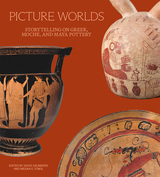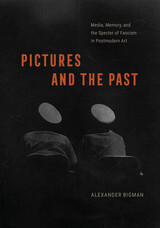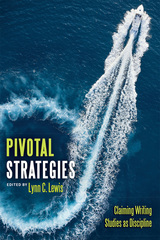
Young children and even infants work hard at mastering various kills and show spontaneous pleasure at their own accomplishment. John Nicholls explores the conditions that cause students to lose their unselfconscious involvement in a game or task and become concerned with how they are stacking up against others. Charting the development of children’s concepts of luck, effort, and ability, he argues that with age they are increasingly prone to take superiority over others as the definition of success. An emphasis on interpersonal competition, which permeates Western society, exacerbates this egotistical tendency and results in diminished accomplishment and alienation from school.
To overcome these problems, Nicholls argues, we must “become as little children” for whom absorption in exploration and accomplishment come naturally, even when those around them are more competent. This ideal is unlikely to be promoted through technical approaches to education, or by the current emphasis on the role of education in economic development. Instead, Nicholls calls for a progressive approach to education. Difficult though it is to implement, this approach is most likely to increase equality of motivation for intellectual development, substantial accomplishment, satisfaction in work, and more productive relations with others. These are important ideas for anyone interested in achievement motivation, for those professionally involved in education, and for nonspecialists interested in, or worried about, how we educate our children.
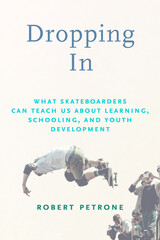
The die-hard local skateboarders of Franklin Skatepark—a group of working-class, Latino and white young men in the rural Midwest—are typically classified by schools and society as “struggling,” “at-risk,” “failing,” and “in crisis.” But at the skatepark, they thrive and succeed, not only by landing tricks but also by finding meaning and purpose in their lives.
In Dropping In, Robert Petrone draws from multiple years of ethnographic research to bring readers into this rich environment, exploring how and why these young men engage more with skateboarding and its related cultural communities than with school. For them, it is in these alternative communities and spaces that they meet their intellectual, literate, and learning needs; cultivate meaningful and supportive relationships; and develop a larger understanding of their place in the world. By looking at what these skateboarders can teach us about what is right and working in their lives, Petrone asks educators and others committed to youth development to rethink schooling structures and practices to provide equitable education for all students.



Today's emphasis on metrics and personalization make evidence-based instruction an imperative. In this practice-based handbook, the authors draw on the research of the humanistic psychologist and educator Carl Rogers to present an empathetic approach to information literacy sessions, reference service, and outreach. With an eye on everyday library work, they offer concrete, empirically-based strategies to connect with learners at all levels. Offering plentiful examples of pedagogy in action, this book covers:
- 6 cognitive principles for organizing information literacy instruction, with sample worksheets and organization tools for instruction planning;
- how to establish rapport and kindle learners' motivation;
- tactics for transcending "cite 5 sources" and other uninspiring research assignments;
- educational evidence debunking the mythical perception that because students are skilled at computers and mobile technology, they already know how to do research;
- questions to keep in mind for inspiring autonomous learning;
- the power of story, as described by Joan Didion, Brené Brown's Ted Talk, and educational psychology research;
- the science behind information overload; and
- a balanced framework for evaluating specific educational technology tools.
Fusing theory with practice, this handbook is a valuable resource to help every practitioner connect with learners more effectively.


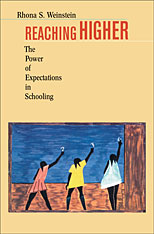
“She has a funny way of looking at you,” a fourth-grader told Rhona Weinstein about his teacher. “She gets that look and says ‘I am very disappointed in you.’ I hate it when she does that. It makes me feel like I’m stupid. Just crazy, stupid, dumb.” Even young children know what adults think of them. All too often, they live down to expectations, as well as up to them. This book is about the context in which expectations play themselves out.
Drawing upon a generation of research on self-fulfilling prophecies in education, including the author’s own extensive fieldwork in schools, Reaching Higher argues that our expectations of children are often too low. With compelling case studies, Weinstein shows that children typed early as “not very smart” can go on to accomplish far more than is expected of them by an educational system with too narrow a definition of ability and the way abilities should be nurtured. Weinstein faults the system, pointing out that teachers themselves are harnessed by policies that do not enable them to reach higher for all children.
Her analysis takes us beyond current reforms that focus on accountability for test results. With rich descriptions of effective classrooms and schools, Weinstein makes a case for a changed system that will make the most of every child and enable students and teachers to engage more meaningfully in learning.
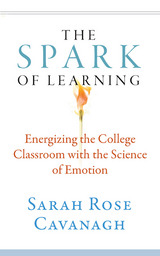
READERS
Browse our collection.
PUBLISHERS
See BiblioVault's publisher services.
STUDENT SERVICES
Files for college accessibility offices.
UChicago Accessibility Resources
home | accessibility | search | about | contact us
BiblioVault ® 2001 - 2024
The University of Chicago Press


